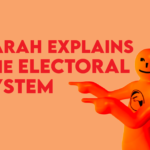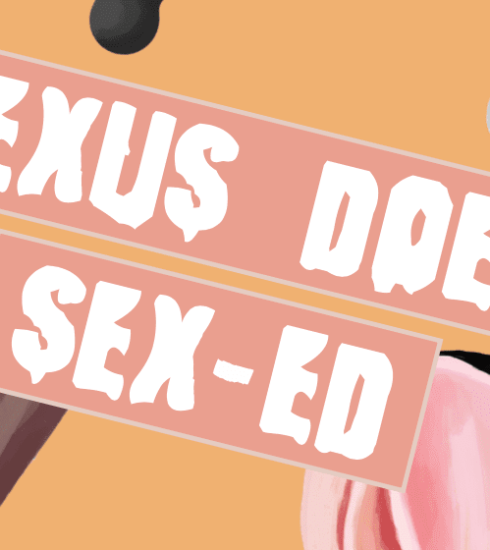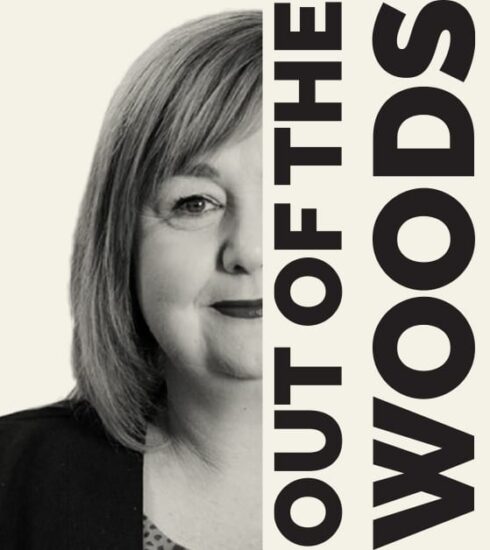Leadership In Politics
It’s getting easier to draw parallels between the American election and our own New Zealand political circus. Whether it is Gerry Brownlee’s smug face, Jacinda’s Mother Theresa act or Trump being, well, Trump. This election is shaping up to be less about policy and more a cult of personalities. Luckily Nexus knows a few doctors who can help. We “virtually” sat down with Dr. Reuben Steff and Dr. Patrick Barrett from the Universities Political Sciences Department to take a closer look at both elections and the role personality and appeal will play at the ballot box.

DR. PATRiCK BARRETT
AOTEAROA: HOME OF HOBBITS, PIXIE DUST, JACINDA MANIA AND OTHER MAGICAL CREATURES
Nexus: Is it a fair assessment to say this election is less about policy and more about the leadership characteristics of Ardern and Collins?
Dr. Barrett: The 2020 election has been described as the “COVID election”, and at the moment the management of the COVID pandemic is the central issue dominating our national political conversation. These are, in my view, essentially policy questions. They are about our national pandemic plan (https://www.health.govt.nz/system/files/documents/publications/influenza-pandemic-plan-framework-action-2nd-edn-aug17.pdf) (have a look at page 9 of this and the phases of 1) planning and preparedness; 2) border management; 3) cluster control; 4) pandemic management); and recovery. They are about policies related to lockdowns, quarantine processes, and support for businesses and working people whose incomes have been lost. To say this is a COVID election, then, is not to say it is not about policy. The election is about policy, but it is policy in relation to the most critical issue we are facing at the moment.
While the pandemic is the focus of our attention, the leadership performance of Ardern in overseeing and implementing the policy around the COVID response is underpinning Labour’s strong polling.
Nexus: While leadership changes are nothing new in pre-election politics (Shearer, Little, Shipley…even sir Geoffery Palmer) how much has the triple change from the National Party damaged their chances of being taken seriously? And how is Collins seen as different from her predecessors without the party changing their policy platform?
Dr. Barrett: Confidence in National will have been damaged by the leadership changes, and the polls indicate this. We need to remember, though, that it was the strong performance by Ardern in leading the COVID response which led to the initial decline in support for National that was the trigger for the vote to drop Simon Bridges and replace him with Todd Muller. The subsequent leadership change to Collins will have reinforced a perception of instability within National (and this was not helped by resignations of MPs in relation to the leaking of health records and the sending of inappropriate images to young women, as well as the unexpected departures of experienced MPs such as Nikki Kaye, Paula Bennett, and Amy Adams). Collins does bring her own personal brand which is something to do with “toughness” (the “Crusher Collins” thing), but she also brings an associated link with “dirty politics” as revealed in the Nicky Hager book. Given that her rise to leadership was so close to the election, she will have had to run with policies National already had in place.
Nexus: Recently we saw Brownlee, with a smirk, dabble in speculation about COVID and timelines that seemed right out of the Trump playbook. Is this going to be more normalised moving forward and could we see the Labour Party do that with Collins, the SFO, the China Trip and her cabinet demotions?
Dr. Barrett: This may have been a situation where Brownlee thought, ‘Desperate times call for desperate measures!’ We can, therefore, expect these tactics when a party is doing badly in the polls, but it’s up to the media, and the rest of us, to call out conspiracy theories and smears. Within the context of the pandemic, my sense is that “playing with a straight bat”, sticking to the issues, and communicating the science clearly is going to resonate more with voters. Attacking opponents through conspiracy theories and innuendo is likely to fall flat. Are these kinds of politics going to be normalised? I hope not. It is up to us all to call it out, and not lower the tone of our national debate. We do need to watch that we don’t slip into the kind of hyper-partisan politics we see in other parts of the world where we lose the ability to have civil debates about issues that matter.
Nexus: Will Labour’s success with Ardern see politics become more youth adjacent with leaders being chosen less for their executive credentials and more for their individual popularity?
Dr. Barrett: Will politics become more “youth adjacent”? I am not sure what that means, but if it means that the views of younger people are taken more seriously, then I hope it is the case. When we think about climate change, for example, it is younger people who are going to have to live longer with the consequences of decisions made today. The activism of younger people about climate change over the past year has shown genuine concern about the future. It is important, in my view, for those concerns to be represented in our national political conservation.
Reference to a lack of executive credentials or experience is patronising and can be just a way of dismissing the idea that younger people have a right to have their perspectives taken into account. While there is the same range of political views among younger people as there is among older people, I think there is a strong case to include the representation of younger people in our political institutions, but we have some work to do on this. Having younger people stand for office is one of the ways we can address lower rates of voting by those in the 18 to 24 age bracket (along with a stronger civics and citizenship education programme, and lowering the voting age to 16).
Nexus: How much of Labour’s current lead in the polls can be put down to the sheer amount of time we see Ardern on our screens, particularly in crisis with the shootings, the earthquake, and now COVID and view her as a strong leader as opposed to a strong party?
Dr. Barrett: The idea that Ardern has an unfair advantage by leading the government’s response to COVID is a line of argument put forward by opposition parties, and it needs to be seen in those terms. My view is that if she were not fronting on COVID management, she would be criticised as missing in action and failing as the leader of the government.
Ardern is clearly popular and the “Preferred Prime Minister” polls show this. Opposition parties, therefore, are unlikely to persuade voters that she should not be PM and they have had to find another line of attack. The “strong leader but weak party” narrative is one of the responses they have developed. The other part of the narrative is that National has a strong, experienced front bench. Given the high number of resignations by experienced National MPs in the past two months, I don’t think this argument can be sustained and we may begin to hear less of it.
It’s not just about the amount of time Ardern has been on our screens, it is the quality of communication and leadership that is being provided while she is there. If she was on our screens, but communicating and leading poorly (think Donald Trump), the opposition would be saying, “Keep her there!”
Nexus: Finally, if this is indicative of a move to a more American style popularity contest what are the chances we could see charismatic leaders of minority parties have more impact in the future, and what does it mean for younger MPs like Swarbrick, Seymour or a post-Winston NZ First.
Dr. Barrett: Party leaders do play a key role in deciding the election outcome, so in this respect we do talk about the ‘presidentialisation’ of politics in New Zealand. This happened with John Key – the 2014 election campaign was all about “Team Key”. The media focuses on party leaders in election campaigns, and the performance of the leader plays an important part in determining the party vote. And we know that the party vote determines the makeup of Parliament, and therefore the government, so it is important. Party leaders are important.
Will minor party leaders who are charismatic have more impact in the future? They may have more impact, but we need to remember that National and Labour remain the two major parties, and most support still coalesces around them. When one of these is weaker, votes do bleed away to minor parties. So I would say it is more about the popularity of National or Labour than the charisma of a minor party leader.
DR. REUBEN STEFF
Dr. Reuben Steff has a new book coming out titled US Foreign Policy in the Age of Trump: Drivers, Strategy and Tactics. Available 18 October 2020, Routledge publishing.
THE SOMEWHAT DIVIDED STATES OF AMERICA
Nexus: How much does character matter? Trump seems to be losing key battleground states by a National 8-9% margin but his base of about 38% seems to stick with him regardless of the scandal?
Dr. Steff: It depends on what side of the political spectrum you sit. Trump’s base of supporters seem to support him no matter what, and many appear devoted to him in spite of his morally dubious character and perhaps even because of it – they see in him as someone who, in their eyes, isn’t ‘fake’ like other politicians. Meanwhile, Trump’s opponents point to his character as one of the key reasons why they are opposed to him and why he does not have the temperament to serve as US president or the character to represent the US in the world.
In many ways, Trump has reshaped the Republican Party into one centred on his cult of personality in which Trump is the ‘dear leader’ and the one source of truth who is smarter than any of his opponents. The danger in this approach is that it has pushed a number of moderate Republicans (including the ‘Never Trumpers’) and young people towards the Democratic Party, with the number of people identifying as Republican dropping throughout Trump’s presidency. The base behind Trump is solid, but shrinking.
Nexus: Part of that Trump base has seemingly and almost bafflingly been the evangelical support. How has someone with three marriages, affairs with porn stars, and only a lip service knowledge of the bible at best remain the option favoured by them over a devout catholic? Does it solely come down to Roe V Wade?
Dr. Steff: During the 2016 election Trump promised to adopt a number of pro-evangelical policies. He’s made good on this by appointing a Supreme Court judge approved by evangelical leaders; approving 53 conservative judges to serve on courts of appeal, and 146 judges to district courts; and voiced his support for anti-abortion activists. No doubt, many evangelicals find Trump’s history and personality to be objectionable, but in pure policy terms Trump has been an extremely staunch supporter of their interests, and this is an area where policy matters much more than personality.
Nexus: How effective has Donald Trump’s attack on the fourth estate (the media) been to keeping his voting base?
Dr. Steff: Quite effective, with many of his supporters primed to believe negative news coverage of Trump is not trustworthy or intentionally misleading (‘fake news’). But the story is mixed, during the 2016 election American’s trust in the mass media dropped to just 32% – a historical low – but this has since rebounded to 41% today (with 69% of Democrats trusting the media and only 15% of Republicans). This rebound suggests Trump’s assault on the mainstream media throughout his presidency has actually led more Americans to rally around the media as a source of truth, although his base’s view of the media has remained unchanged.
Nexus: At the time of print, he has endorsed two candidates linked to birtherism and Q-Anon and even called one of them a rising star in the party. He has also seen the only black Republican in congress resign. What are the long term impacts of this for the GOP in a changing demographic picture?
Dr. Steff: America’s changing demographic profile suggests that whites will be a minority (albeit the largest minority) within 25 years, as the number of Hispanics and African Americans increase. Therefore, Trump’s efforts to stir up racial and cultural resentment, and related views that the Republican Party is a pro-white party, could damage their prospects over the medium to long term unless there is a course correction in which Republicans seek to broaden their appeal to an increasingly diverse electorate.
As to Trump’s support of QAnon and birtherism, and for other bizarre conspiracy theories, it’s instrumental. Trump has no true attachment to any ideological cause, value, or moral; to Trump, the only thing that’s important is winning at any cost. He’s a moral void. He’s uniquely shameless. This provides him with a virtually unlimited set of tactics to serve his political objectives. As such, if he feels in the moment tweeting his support for a controversial candidate or conspiracy will benefit him, then he’ll do it.
Nexus: With it looking increasingly likely that the Republicans will lose control of three out of four branches of government, Trump has begun to question the legitimacy of the election with both mail-in ballots and the potential for voter fraud. With recent polls even moving Texas into a toss-up is he going to have any path to victory, and if not does he double down on his claim that “The only way I lose will be this is rigged”?
Dr. Steff: We should treat the polls with some caution given most of us were caught out in 2016 by the result of the US election and Brexit votes, although Biden’s large lead over Trump in a range of national polls does suggest he is ahead by some margin. However, note that state polls in battleground states are the ones to watch – Trump could lose the national vote again but win in the electoral college like he did in 2016, and Trump is down (in aggregate) in the battleground states by 4.2%. That is not a large lead for Biden and near the margin of error. At present, Fivethirtyeight’s election model gives Trump a 27% chance of winning the election (Fivethirtyeight.com is probably the most balanced and empirically-informed site to visit to follow the US election), which is higher than the national polling would suggest.
If a state like Texas goes democrat then, no, Trump has virtually no path to victory. But Texas is highly unlikely to go democrat with polls showing it’s currently +3.5% Trump. So long as Trump is behind he’ll continue saying the democrats are preparing to rig the election against him. He thrives on sowing chaos and disinformation. It’s part of his MO. Democrats are also saying Trump is undermining the post office, and thus people’s ability to vote-by-mail during a pandemic in which 50% of Americans – and more Democrats than Republicans – are preparing to vote that way. So both sides are saying the other is effectively seeking to cheat and steal the election. This is a recipe for a highly contested outcome no matter who wins in November, and no matter what the truth is (will we even know exactly what the truth is amidst all the disinformation and uncertainty?).
Finally, given the stakes, personalities involved, emotion and passion on both sides, recent protests and movements like Black Lives Matter, there is a possibility that some Americans – in particular Trump-leaning voters – are not being honest about who they will vote for in November, and the ‘Silent Majority’ (what Nixon called his supporters) could come out in November (well, if it even exists). Recently, a poll showed that 62% of Americans say they have political views they’re afraid to share, with conservatives much less likely to share their views than liberals. As such, there may be ‘shy Trump voters’ out there who are either lying to the pollsters about who they will vote for or do not engage with polls when asked to do so. Perhaps in heavily pro-Trump parts of the country there are ‘shy Biden voters’ too but the balance likely falls the other way.
Nexus: Finally, how much of this election will be a referendum of his leadership in both COVID and Black
Lives Matter?
Dr. Steff: Well, we’ll have to wait and see! Polls have showed that people have disapproved of his response to COVID and his response to the recent wave of protests and Black Lives Matter. However, people’s concerns about all this, and the relative weighting they give it, is likely caught up in their views of the US economy and their own livelihoods. The one area where Trump consistently outperforms Biden is on the economy. If the vigour behind BLM and the protests does not continue through to November and/or Trump successfully crafts a convincing counter-narrative that the protests are undermining US law and order (which he has attempted to do repeatedly, and even by calling BLM a ‘symbol of hate’), the US economy continues to improve and a vaccine is approved by November, then it’s possible Trump will go into the election with the wind at his back (even if not a large polling lead). It feels like Biden is primed to win but there are many unpredictable variables in play and no doubt more surprises to come. In short, no one knows who is going to win and this election is going to be fascinating, worrying and discombobulating to watch.





